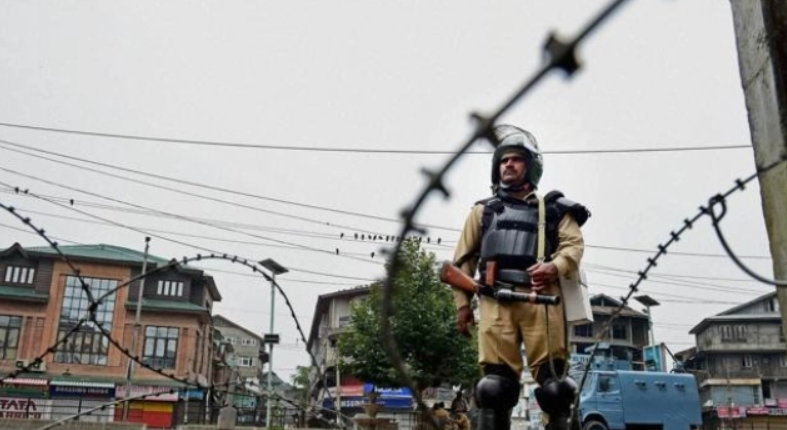A report titled ‘Imprisoned Resistance’ — on the situation in Kashmir post abrogation of Articles 370 and 35A — recently published and discussed by sections of the media, does not have anything surprising. A 11-member team comprising advocates, trade unionists, human rights activists and a psychiatrist, has produced the report following their visit to the Valley between September 28 and October 4. It shows how a government that wants to correct the cumulative effect of historical mistakes in one fell swoop, pitted against a demographically ghettoised and hardened populace caught in a geopolitical strife, has failed.
The challenges before the government are mighty. First, it is not a fledgling and has little time left to show real progress or even a semblance of it. Each passing day and week is pushing it further back into a corner as the pressure of public expectation rises. There are other more pressing issues, such as a failing economy, that require its urgent attention to keep face. More compromises may be in order. How busy this government is may be likened to a fly-poster with nettle rash. And in the Kashmir issue, it seems that, as a writer has put it, “the government’s predicament is similar to that of a man who has stepped on a landmine and now hesitates to lift his boot for fear of triggering an explosion, but equally knows he cannot stand in that position for unlimited time.”
The report, while damning, should make the government go for a quick rethink on whether the way it has handled the situation in Kashmir following the move to take control of the now bifurcated state was correct or not. ‘Imprisoned Resistance’ paints a grim picture. It has horror stories of how people were kept in fear by means of loudspeaker relay of the screams of someone being tortured and creation of normal traffic like looks by putting up road blocks to slow vehicular movement and then capturing those images using drones. Such actions, though, have come to be expected of armed security forces that were entrusted with keeping peace in the Valley, throughout the time that there is the possibility of unrest being sparked, with limited resources or training at their disposal.
The security forces cannot be blamed entirely for the situation. They are merely focusing on the objective of keeping peace and reducing loss of life and property by tried and tested methods. Media coverage of the experts’ report, though, is predominantly without any counterpoint or explanation from the security forces. What that does is merely get the man in the trenches under greater pressure from high-up and lead to casualties for the security forces. The Centre had deliberately militarised Kashmir to keep the now bifurcated state under its thumb. It had the responsibility, therefore, to think things through in a way that there was little or no scope for violation of rights of the people of the Valley. Now it has no option but to continue to keep the Valley under its control for as long as it does not silence all resistance. It is a tall order.
One fact that gets conveniently ignored in the scramble for Kashmir is the silent spread of radicalisation in other parts of the country. It will not be surprising if a Kashmir-like situation emerges in any other part of the country, where demographics are quickly changing and reports abound of sleeper cells of militant organisations spreading their tentacles. If an organisation such as the IS had the power to draw youngsters from remote reaches of not just India but from over hundred countries to join the war for the caliphate, Kashmir can have greater attraction. Mischief-mongering states such as China and Pakistan, with help from able neighbours, can foster unrest in India and shatter its pride at unity in diversity with limited investment. Perhaps a subtler approach on the government’s side, keeping the cultural peculiarities of Kashmir in mind, would have produced better results. Reports, such as the one under discussion have brought out only one side of the matter. It will undoubtedly put pressure on the government to act. But mere action is insufficient. Kashmir presents a human issue and should be dealt with that way, keeping the welfare of all citizens in mind. The government has a mammoth task at hand. It will hopefully rise to the challenge for Kashmir and for India at large. Time seems to be running out fast.
